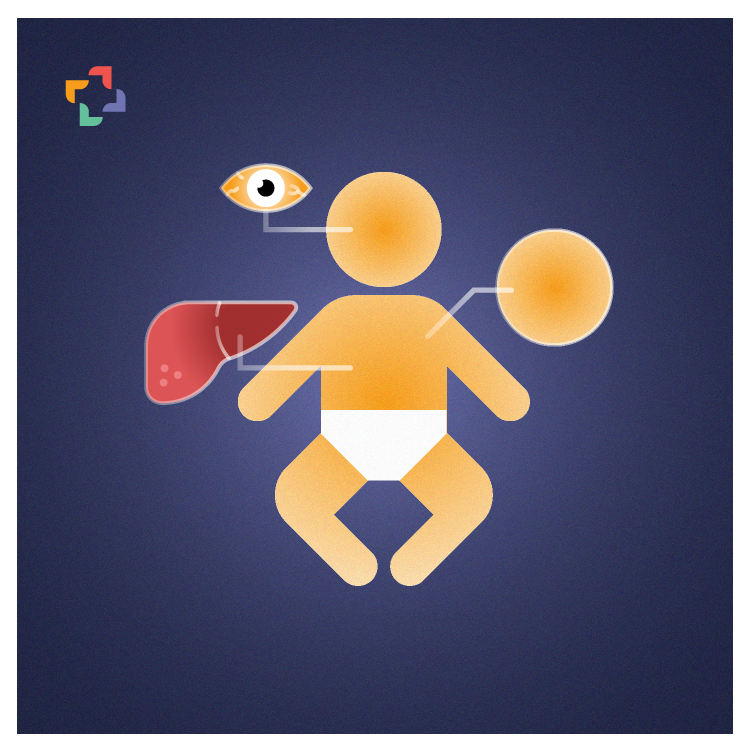Podcast-Jaundice
Learning Objectives
At the end of this course, participants should be able to:
- Recognize the Spectrum of Thyroid Disorders in Pediatrics
- Interpret Thyroid Function Tests and Their Clinical Relevance
- Distinguish Between Pathological and Transient Thyroid Abnormalities
- Understand Referral Guidelines for Pediatric Endocrinology
- Apply Clinical Judgment in Managing Thyroid Disorders
Intended Audience:
This online course is designed for pediatricians, family physicians, and pediatric endocrinologists.
Abstract:
In this episode, Dr. Eyal Ben Isaac and Dr. Tania Mitsinikos discuss the importance of obtaining a comprehensive maternal and family history when assessing neonatal jaundice, including details about previous pregnancies, miscarriages, and any family history of liver disease or hemolytic anemia. They emphasize the significance of understanding delivery complications, such as traumatic or assisted births, and how these factors might contribute to jaundice. The conversation also touches on the relevance of considering prematurity and its impact on bilirubin levels, with a particular focus on jaundice in the first 24 hours, which is always considered abnormal. The importance of blood tests, such as blood typing and Coombs testing, as well as monitoring bilirubin levels, is stressed, especially for infants with rapidly progressing jaundice. The speakers highlight the need for timely imaging and referral for further workup, including ultrasound and, when necessary, more advanced tests to rule out conditions like biliary atresia. The session concludes with a reminder of the urgency in diagnosing and treating conditions that could worsen if not addressed promptly.
Assessment and Earning CME Credit:
This course in English is not CME-accredited. However, it provides valuable educational content that can enhance your knowledge and skills in the subject matter. To receive CME credit for this course in Armenia, you must take the course in Armenian and complete the post-course quiz. You have three chances to achieve a passing score of 70%. Once you pass the quiz, we will send your information to the Armenian Ministry of Health for credits.

Dr. Tania Mitsinokos
Tania Mitsinikos, MD, is the director of the Metabolic Dysfunction-Associated Steatotic Liver Disease (MASLD) Clinic and Associate Director of the Liver Transplant Hepatology Fellowship at Children's Hospital Los Angeles. She is also a Clinical Assistant Professor of Pediatrics at the Keck School of Medicine of USC. Dr. Mitsinikos' clinical interests focus on pediatric Metabolic Dysfunction-Associated Steatotic Liver Disease (MASLD), pediatric hepatology, and pediatric liver transplant. She completed her medical education at the University of Southern California, Keck School of Medicine, followed by an internship and residency in general pediatrics at Children's Hospital Los Angeles. Dr. Mitsinikos then pursued a fellowship in gastroenterology and transplant hepatology at the same institution. She is board-certified in pediatrics, pediatric gastroenterology, and pediatric transplant hepatology. Dr. Mitsinikos is a member of the American Academy of Pediatrics, the North American Society of Pediatric Gastroenterology, Hepatology, & Nutrition, and the American Association for the Study of Liver Diseases.
